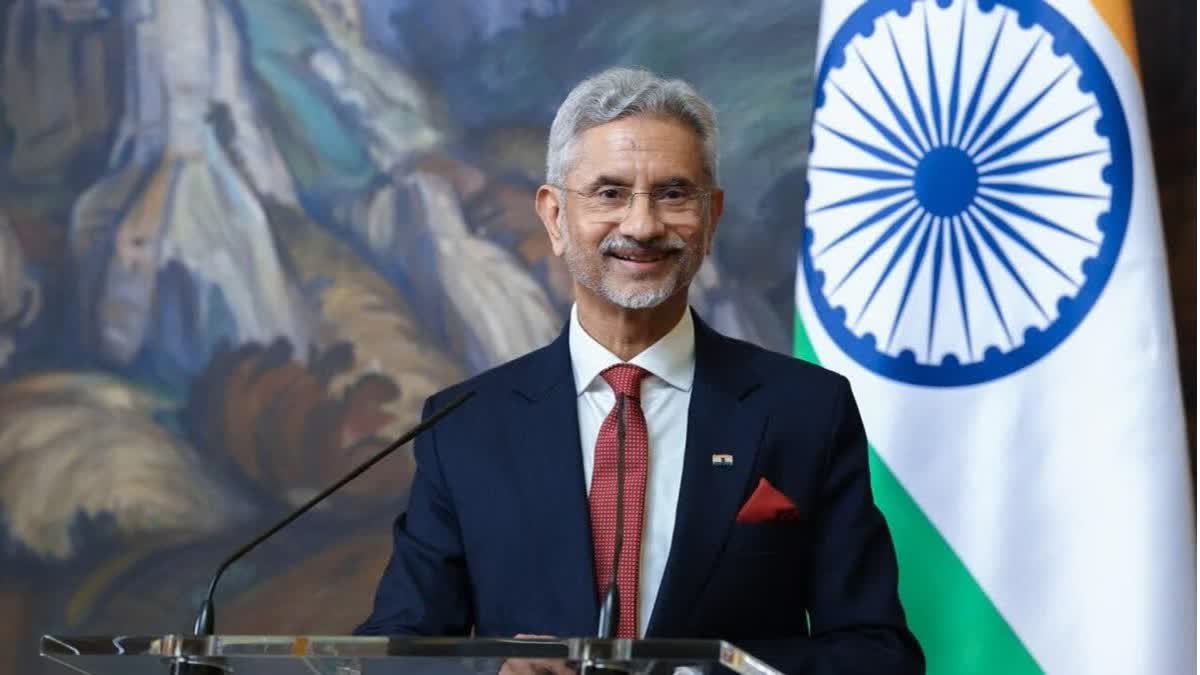New Delhi: External Affairs Minister (EAM) S Jaishankar will be on an official visit to Sri Lanka on Friday. He will meet the top leadership of the island country including President Anura Kumara Dissanayake.
The visit aims at strengthening the longstanding partnership for mutual benefit in line with India’s Neighbourhood First Policy and SAGAR outlook, the Ministry of External Affairs said on Thursday.
This will be the first high-level engagement between India and Sri Lanka since the Dissanayake assumed office. It also presents a valuable opportunity for India to reinforce its commitment towards supporting the development of Sri Lanka amid potential shifts in its foreign policy under the new Marxist regime.
India’s High Commissioner to Sri Lanka, Santosh Jha, played a key role by being the first foreign diplomat to congratulate Dissanayake after the election results were announced.
Experts opined that Jaishankar’s swift tour suggests that New Delhi expect Colombo not to take a hostile stance as was the case with Maldives and Bangladesh, the two neighbouring countries which saw change in the power government lately.
Meanwhile, the Leader of the Opposition in the Lok Sabha, Rahul Gandhi, has expressed deep concerns to Jaishankar about the recent arrest of 37 fishermen from Tamil Nadu by Sri Lankan authorities.
In a comprehensive letter to Jaishankar, Gandhi urged immediate and decisive action to secure the release of the fishermen and the return of their boats, which are not only their livelihood but also crucial for the local fishing community.
Gandhi strongly condemned incidents of Indian fishermen being apprehended and their assets seized by Sri Lankan authorities. He specifically highlighted the recent arrest on September 21, emphasizing that the fishermen were small-scale operators who were attempting to assist a distressed Sri Lankan boat when they were detained for allegedly crossing the International Maritime Boundary Line.
The seized boats were reported to be community property acquired through pooled resources, representing a significant loss for the entire fishing community.
Tamil Nadu Chief Minister MK Stalin has also urgently apprised Jaishankar of the situation, seeking immediate and tangible measures for the release of the detained fishermen and their boats, which have had a detrimental impact on the livelihoods of many families in the region.
As tensions rise, the upcoming visit by Jaishankar is poised to be a critical and defining moment for India-Sri Lanka relations, with the resolution of this issue being of utmost importance.
The fishermen issue between India and Sri Lanka is a long-standing conflict primarily involving fishermen from Tamil Nadu in India and those from the northern region of Sri Lanka. Indian fishermen often venture into Sri Lankan waters for fishing, sometimes due to the depletion of fish stocks in their waters. This leads to arrests and confiscation of boats by the Sri Lankan Navy. The livelihoods of many fishermen in both countries are affected. Sri Lankan fishermen claim that Indian trawlers deplete fish stocks and damage marine resources.
The issue is sensitive, particularly in Tamil Nadu, where many see it as a matter of livelihood and cultural identity. Political leaders often voice support for local fishermen, leading to heightened tensions.
Both governments have attempted to address the issue through talks and agreements, but solutions have been slow and often face challenges due to domestic pressures and differing national interests.
There are also environmental implications, as practices such as bottom trawling by some Indian fishermen can cause significant harm to marine ecosystems.
Efforts for a sustainable and peaceful resolution continue, but the situation remains complex, influenced by historical, economic, and political factors.
Read More



